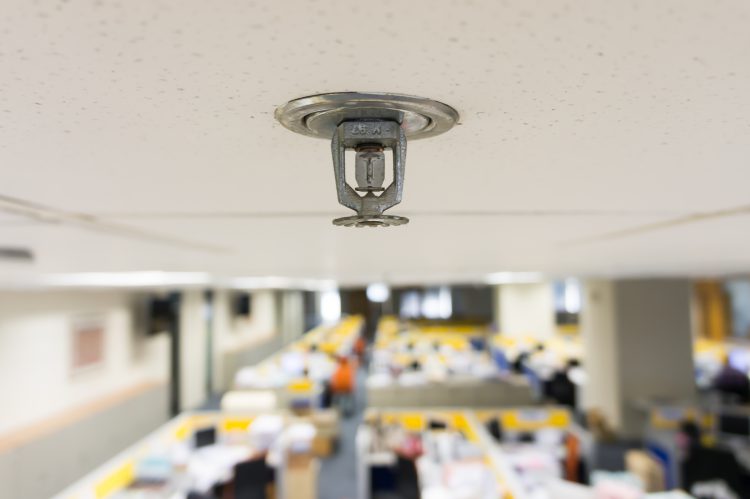
In a commercial building, a fire sprinkler system is one of the most effective ways to control and extinguish fires. A well maintained fire sprinkler system can mean the difference between minor damage and total destruction.
A fire sprinkler system is a group of pipes and sprinkler heads located on ceilings or overhead. They slow the spread of fire or extinguish fire by releasing a spray of water. They are designed to cover as much area as possible to provide widespread coverage.
Most fire sprinklers are heat activated. When heat is detected, water is released and the fire alarm will likely be activated. Obviously, we need fire sprinklers to be as reliable as possible. So when and why do they fail?
The NFPA reports that there are an average of 660 reported sprinkler failures a year. However, with a proper working fire sprinkler 96% of the time they are effective in controlling most fires. The most common causes of sprinkler failures are:
- System shut-off
- Manual intervention
- Damaged components of fire sprinklers
- Lack of maintenance
- Inappropriate design of the fire sprinkler systems
Fortunately, most of these problems can be alleviated with proper, regular inspection of your fire sprinkler system by a trained professional. The NFPA suggests different intervals per year in order to ensure effectiveness.
Monthly inspection should ensure that
- Valves are accessible, labeled properly and are not leaking
- Wet gauges should be in good condition with proper water pressure detected
- Dry gauges should have normal water pressure with the quick opening device showing the same pressure as the dry pipe valve
Quarterly inspection should:
- Check for physical damage to the supervisory alarm and water flow alarm
- Dry test the system to check for valve issues
- Check that all fire department connections are accessible
- Check for leaks around the fire department connections
- Inspect pressure reducing valves (free of leaks, open position, maintaining downstream pressure)
Annual inspection should include all of the above, plus professional inspection by a certified professional for code compliance and tagging.
Well-maintained fire sprinkler systems are paramount to your building safety and occupants. The professional at Total Fire and Safety is dedicated to keeping you safe and in code compliance. Give us a call today to schedule an inspection at 630-960-5060.
 Facebook
Facebook
 Instagram
Instagram
 LinkedIn
LinkedIn
